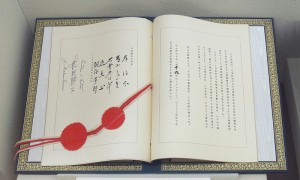Egypt & the Take Care Clause
In the course of recent debates over how to respond to the events in Egypt, many have pointed out that the central legal question is whether Section 508 of the Foreign Assistance Act obligates the President to cancel hundreds of millions in U.S. military aid. Reports have now emerged that the Administration has quietly decided to suspend aid on a temporary basis, but without deciding that a coup has occurred. Putting aside the complex policy questions at stake, I want raise a couple of points on the relationship between this decision and the President’s duty under the Take Care Clause, and suggest that the President has a statutory and constitutional obligation to go one step further and cancel military aid, unless Congress passes a new law overriding the current statute.
Here’s what Section 508 says:
None of the funds appropriated or otherwise made available pursuant to this Act shall be obligated or expended to finance directly any assistance to any country whose duly elected head of government is deposed by military coup or decree: Provided, That assistance may be resumed to such country if the President determines and reports to the Committees on Appropriations that subsequent to the termination of assistance a democratically elected government has taken office.

